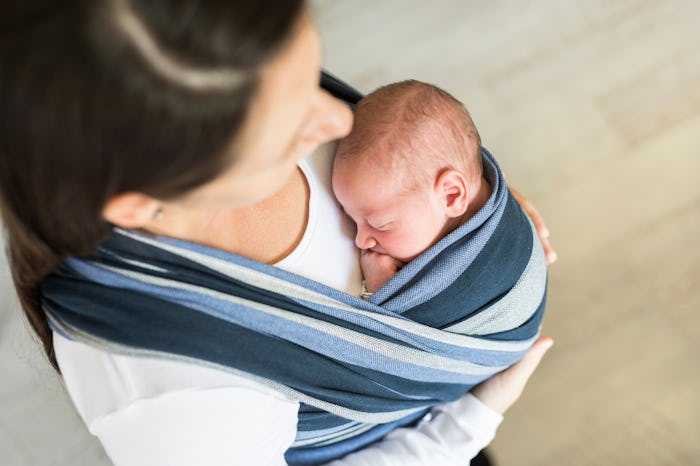Life

Can SIDS Occur Even If Baby Isn't In A Bed?
Of all the parenting topics out there, SIDS is one of the most heartbreaking. This condition can happen out of the blue, with almost no warning, and may give you a moment's fright when you go to put your baby down for a nap. But along those lines, can SIDS occur even if baby isn't in a bed? Because sometimes it's tempting to nap on the couch with your little one.
Sometimes an otherwise healthy baby will inexplicably pass away while sleeping, and this is known as sudden infant death syndrome (SIDS), as explained by the Mayo Clinic. Researchers suspect the condition may be related to an infant's ability to regulate breathing and awaken from sleep, as further noted by the Mayo Clinic. But whatever the cause, SIDS can be a devastating condition.
Unfortunately, SIDS can happen any place a baby sleeps, as explained by SIDS Resources. However, there are steps you can take to ensure a safer sleep environment for your little one. In general, it's a good idea to avoid very soft bedding. According to the National Sleep Foundation, couches, daybeds, and waterbeds may present an increased risk of SIDS. Of course, many caretakers accidentally fall asleep on a couch or chair while caring for the baby. It happens. Generally, though, it's safer to avoid these types of sleep environments with your very young infant.
So what is the best place for your baby to lay her head at night? As explained by the American Academy of Pediatrics (AAP), the safest place for your baby to sleep at night is in a crib or bassinet near — but not in — your bed. This gives you the proximity needed to monitor your baby without any of the potential dangers associated with bed sharing. And as the AAP further added, the safest crib is away from any toys, blankets, or pillows, as these may present suffocation hazards. In addition, if the fear of SIDS is keeping you awake at night, just remember that the rate of SIDS declined sharply from 1990 to 2014, as reported by the Centers for Disease Control. Chances are, you'll be fine. By keeping up with safe sleep practices, you and your little one can rest easy at night.